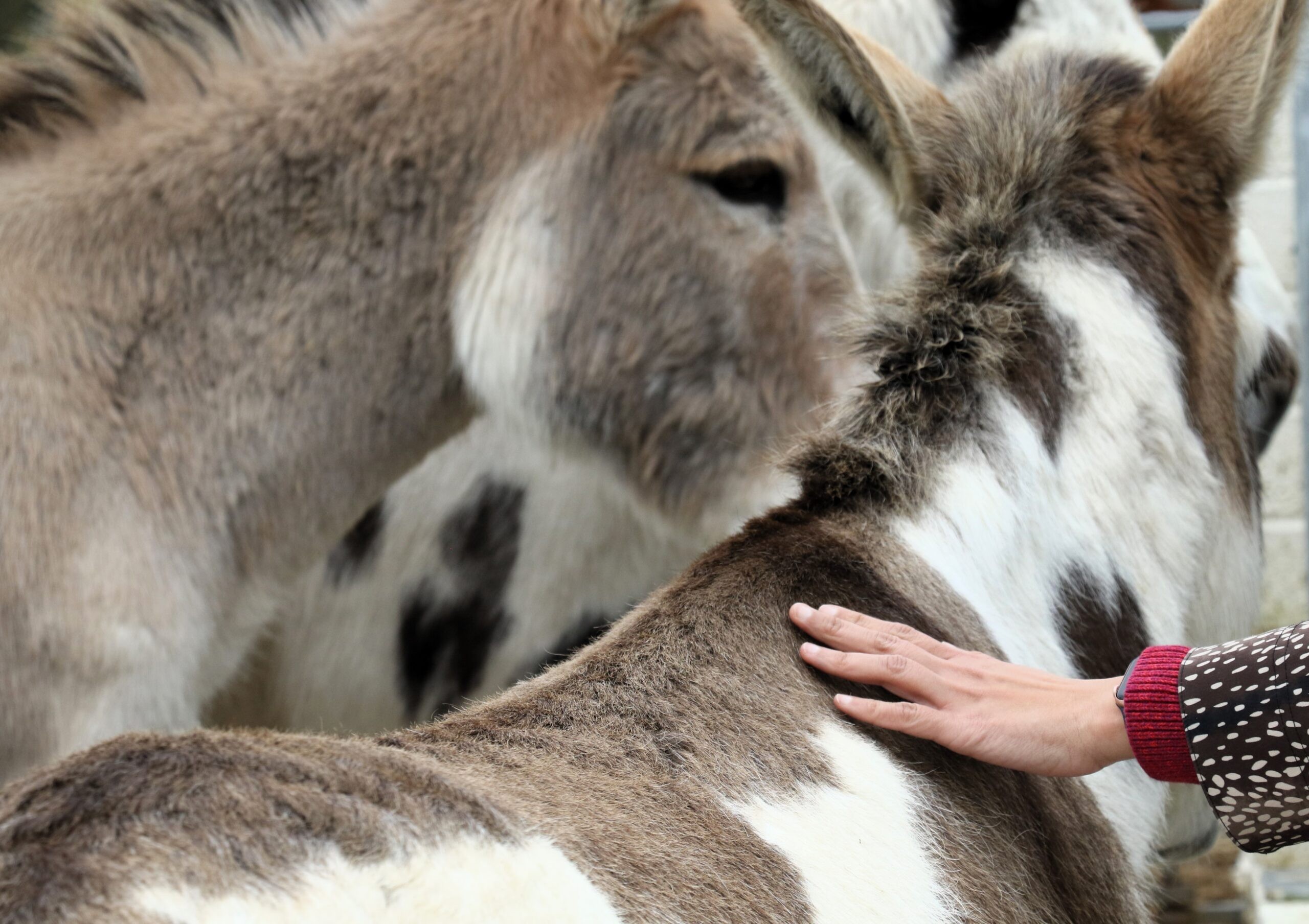Donkeys, with their gentle eyes and calming presence, are increasingly capturing hearts as potential companion animals. Originating from social and inquisitive stock, donkeys can indeed make wonderful pets for the right owners. Their endearing nature quickly wins people over, as Ben Hart, behavior expert at The Donkey Sanctuary, aptly notes. However, understanding their specific needs is paramount to ensuring their happiness and health. Providing suitable living conditions is not just about physical space; it’s about nurturing their mental and physical wellbeing, leading to a rewarding companionship for both donkey and owner.
The Social Nature of Donkeys: Why Company is Key
Donkeys are inherently social creatures. Solitary confinement is detrimental to their wellbeing, as they thrive on companionship. Ideally, a donkey’s best friend is another donkey. They form deep bonds, often in pairs, creating friendships that can last a lifetime. Witnessing a pair of donkeys interact, support, and care for each other is a truly enriching experience for any owner.
The depth of these bonds means that the loss of a partner can be deeply upsetting for a donkey. They require time to grieve and need supportive care during such periods. Understanding how to comfort a grieving donkey is crucial to prevent stress-related conditions like hyperlipemia. Providing extra attention and comfort can significantly aid their recovery and wellbeing.
Essential Needs for Donkey Wellbeing
Shelter and Dry Areas: Protecting Donkeys from the Elements
Unlike horses, donkeys have coats that are less water-resistant. Their hooves also readily absorb moisture, making them susceptible to foot ailments like laminitis and seedy toe, especially in damp conditions. Providing adequate shelter is therefore not just a comfort but a necessity. A field shelter, an open stable, or any form of robust, dry standing area accessible at all times is vital. This 24/7 access to dry ground allows donkeys to escape mud and wet, significantly reducing the risk of moisture-related health issues. Ensuring access to shelter and dry areas is a fundamental aspect of responsible donkey ownership, demonstrating a commitment to their comfort and health.
Grazing and Space: Room to Roam and Thrive
Sufficient space for grazing and play is another critical element in donkey care. Donkeys need room to move, explore, and exhibit natural behaviors. A minimum of 0.5 acres of grazing land per donkey is recommended. For a pair of donkeys, this translates to at least one acre. This space allows for adequate foraging and exercise, contributing to their physical and mental stimulation. Proper land management is also important to ensure the grazing area remains healthy and safe for the donkeys.
Attention and Enrichment: Nurturing Mind and Body
 Two donkeys being groomed by a person in a field, highlighting the interaction and enrichment needed for donkeys as pets.
Two donkeys being groomed by a person in a field, highlighting the interaction and enrichment needed for donkeys as pets.
Like any pet, donkeys require consistent commitment and daily interaction. This encompasses a range of responsibilities, from maintaining their living environment and ensuring proper nutrition to regular grooming and hoof care. Equally important is providing mental stimulation and a stimulating environment. Enrichment is key to preventing boredom and encouraging natural behaviors. Activities that allow donkeys to engage with their surroundings, make choices, and stay mentally active are crucial for their overall wellbeing. This proactive approach not only combats boredom but also promotes physical health through regular movement and helps maintain a healthy weight. Furthermore, interacting with donkeys and providing enrichment is an incredibly rewarding experience for owners, deepening the bond between human and animal. While most donkeys naturally enjoy human interaction, it’s important to remember that building trust with a nervous or fearful donkey takes time and patience. However, the reward of earning their trust is immeasurable.
Veterinary, Dental, and Foot Care: Prioritizing Donkey Health
Responsible donkey ownership includes a commitment to regular health care. This means routine veterinary check-ups and necessary vaccinations. Foot care is also paramount, requiring a visit from a farrier every 8 to 10 weeks to ensure their hooves are properly maintained. Dental health is another essential aspect, necessitating an equine dental technician visit at least once a year. While the costs associated with donkey care, including veterinary, farrier, and dental expenses, can accumulate, proactive care significantly reduces the likelihood of more costly interventions down the line. Providing good nutrition, ample exercise, a stimulating environment, and consistent preventative care are investments in their long-term health and wellbeing.
Commitment and Considerations Before Welcoming Donkeys
Before deciding if donkeys are the right pets for you, it’s important to consider the level of commitment involved. Are you prepared to dedicate the time, resources, and space required for these unique animals? Understanding the specific needs of donkeys, and how they differ from horses, is crucial. Donkeys are not simply smaller horses; they have distinct dietary, environmental, and social requirements.
For those who are prepared to learn about and meet these needs, donkeys can be exceptionally rewarding companions. For individuals in the UK who believe they can offer a loving home to a pair or more of donkeys, The Donkey Sanctuary’s rehoming scheme provides an opportunity to become a Donkey Guardian. This program allows you to provide a loving environment for donkeys in need.
Donkeys become more than just pets; they become a significant part of your life. They offer endless entertainment, bring daily joy, and form deep bonds with their caregivers. However, it’s vital to remember that donkeys have a long lifespan, often living for many decades. This is a long-term commitment that should be carefully considered before welcoming these delightful animals into your life.